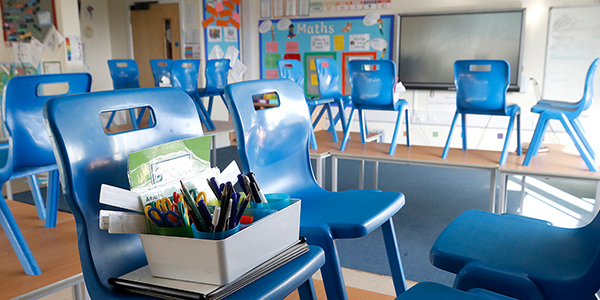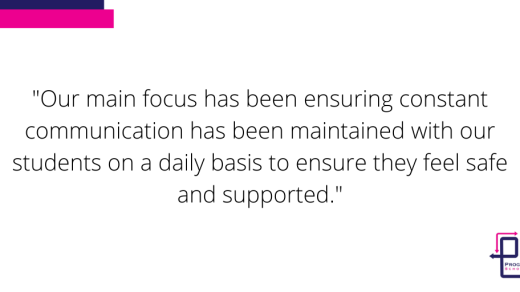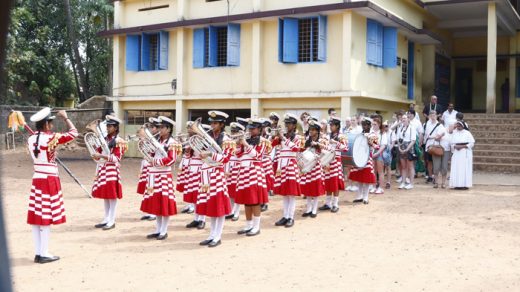Government back to school campaign launched

The government has launched its back to school and college campaign to set out the experience that students can ‘get back to’ from September, with restrictions such as bubbles eased to allow a full return to sport, music, drama, science experiments and being with their friends.
Schools and colleges are maintaining proportionate protective measures such as testing, ventilation and extra hygiene precautions that help keep children and staff safe and minimise disruption to face-to-face education.
Secondary schools and colleges are offering two tests on-site at the start of term, followed by continued regular testing at home. Students aged 16 and 17, as well as younger children aged 12-15 in certain eligible groups are encouraged to take up the offer of the vaccine.
The campaign features Matt Richards, gold medal-winning swimmer at the Tokyo 2020 Olympics, who draws on his own experience of regular COVID-19 testing as part of Team GB to encourage secondary and college students to continue testing from September.
The campaign also features Dr Ranj Singh, NHS consultant paediatrician and TV presenter who will reassure students and families about the return to school. Students and teachers appear across social, digital and radio adverts talking about everything they are looking forward to during the new school term.

Education secretary Gavin Williamson said: “I know the return to school and college this September is a huge moment for students and education staff, who have all shown enormous resilience over the past 18 months.
“It is the point when our focus can shift away from the disruption of COVID-19 and on to learning, enrichment and recovery.
“I have every confidence that school and college staff, parents and students will continue to work together admirably, following pragmatic measures like testing and vaccinations to minimise disruption and keep children where they belong – in the classroom.”
Health and social care secretary, Sajid Javid said: “As students in England prepare to return to school they can look forward to a more normal year – seeing their friends, getting back to sports and activities, and of course learning.
“As well as offering vaccines to 16 and 17-year-olds in England, testing will remain an important part of keeping our young people safe as we go into the new school year. I urge parents to encourage their children to take regular tests, to help break chains of transmission and stop the virus spreading.”
Dr Ranj Singh, NHS consultant paediatrician and TV presenter said: “As Covid-19 becomes a virus we learn to live with, delivering face to face education, without disruption is vital to support our children’s mental and physical health and wellbeing. There is a low risk of coronavirus in children compared to other ages groups, and the benefits of education continue to outweigh the COVID-19 health risk to children and students.”
The launch of the campaign comes as the government invests £25 million in providing carbon dioxide monitors to state-funded education settings, helping them take action if they identify poor ventilation, or be reassured that ventilation is sufficient across their classrooms and staff rooms.
Parents are encouraged to visit gov.uk/backtoschool for information and practical guidance to help them plan for their children’s return to school.

Leaflets explaining more about the safety measures in place will be made available over the coming days.
The government has also updated its guidance for schools on how to respond if they see an increase in cases. Any reintroduction of measures such as wearing of face coverings should not be taken lightly, only be for a defined period, and should account for the detrimental impact on the delivery of education.
Schools are expected to continue offering immediate access to remote education where young people test positive for the virus and need to isolate.
Grant funding will be available for schools and colleges to claim to provide internet connections to help disadvantaged pupils who may need to learn remotely. They will be able to claim up to £75 over three months to provide mobile dongles or broadband routers for pupils.
A small team of attendance advisers are also being recruited to work with local authorities and multi-academy trusts to provide advice, guidance and support on attendance where absence rates are higher than average.



